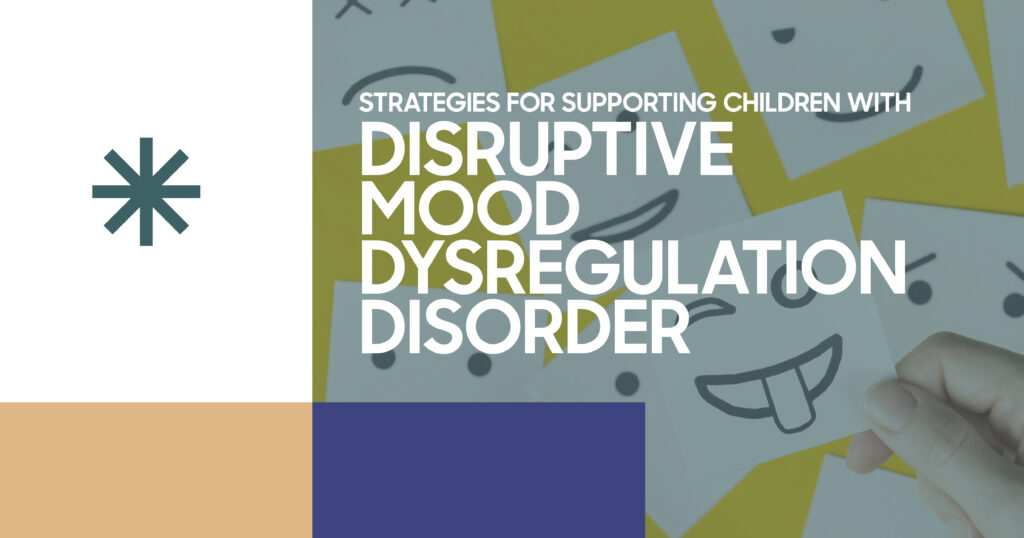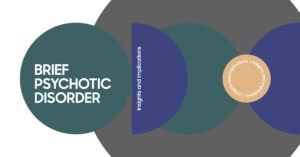Supporting a child with Disruptive Mood Dysregulation Disorder (DMDD) is both a challenge and an opportunity. On one hand, caregivers and teachers may face daily struggles – explosive temper outbursts, constant irritability, and difficulty with emotional regulation. On the other hand, with the right strategies, there is the potential for life-changing growth, resilience, and improved mental health for the child.
DMDD is not simply “bad behavior” or “a phase.” It’s a childhood mood disorder that requires understanding, patience, and structured intervention. The journey toward stability involves a blend of education, therapeutic approaches, consistent parenting techniques, and early professional help.
In this article, we’ll explore DMDD, how it differs from other disorders, the toll it can take on development, and actionable strategies that caregivers can implement. We’ll also review when to seek professional guidance and how Treat Mental Health can help you take the first step.
Understanding Disruptive Mood Dysregulation Disorder (DMDD)
DMDD is a childhood disorder characterized by severe and recurrent temper outbursts (verbal or behavioral) that are out of proportion to the situation and inconsistent with the child’s developmental level. These are paired with a persistently irritable or angry mood most of the day, nearly every day, between outbursts.
It was added to the Diagnostic and Statistical Manual of Mental Disorders, Fifth Edition (DSM-5) in 2013 to address concerns about the overdiagnosis of pediatric bipolar disorder. Unlike bipolar disorder, DMDD does not involve distinct periods of elevated mood (mania or hypomania). Instead, it reflects a pattern of chronic irritability and difficulty regulating emotions.
Common Signs and Symptoms of DMDD
Before we can manage DMDD, it’s essential to identify it. The symptoms go beyond ordinary childhood mood swings. While most children experience frustration, DMDD presents in a severe and consistent pattern that disrupts daily life.
Key symptoms include:
- Severe temper outbursts (verbal rages or physical aggression) occurring three or more times per week.
- A persistently irritable or angry mood between outbursts.
- Symptoms present for at least 12 months without a break of more than three months.
- Impairment in at least two settings (home, school, with peers).
- Onset before age 10 (but diagnosis not made before age 6 or after age 18).

How DMDD Differs from Other Mood and Behavioral Disorders
While symptoms of irritability and behavioral issues may overlap with other childhood disorders, DMDD has distinct features.
These are the key differences between DMDD and Other Disorders
| Disorder | Core Emotional Pattern | Episode Duration | Age of Onset | Key Differences |
| DMDD | Chronic irritability, frequent outbursts | Persistent over 12+ months | 6–18 years | No manic/hypomanic episodes; daily irritability |
| Bipolar Disorder | Shifts between mania/hypomania and depression | Episodic, days to weeks | Late adolescence or early adulthood | Manic phases with elevated mood, decreased need for sleep |
| Oppositional Defiant Disorder (ODD) | Argumentative, defiant, vindictive behavior | Ongoing, but not necessarily irritable between episodes | Early childhood | DMDD has a more severe mood component |
| ADHD | Inattention, hyperactivity, impulsivity | Chronic | Early childhood | Mood symptoms are less severe and not the primary issue |
The Impact of Chronic Irritability and Outbursts on Development
Children with DMDD often face social, academic, and emotional challenges that can have lasting effects. Irritability and poor emotional regulation can strain relationships with peers, teachers, and family members.
Research shows that chronic irritability in childhood is linked to an increased risk of anxiety and depression in adolescence and adulthood. Furthermore, repeated outbursts can lead to disciplinary action at school, impacting academic performance and self-esteem.
Long-term, untreated DMDD can contribute to:
- Difficulty forming and maintaining friendships.
- Poor coping skills in stressful situations.
- Academic underachievement.
- Risk of developing other mood or anxiety disorders.
Effective Strategies to Improve Emotional Regulation
The cornerstone of DMDD management is teaching emotional regulation skills – helping children recognize, understand, and manage their emotions before they escalate into outbursts. This process takes time, consistency, and adaptation to the child’s needs.
Addressing Frustration and Preventing Escalations
One of the biggest challenges for children with DMDD is handling frustration. Instead of reacting impulsively, they need structured techniques to pause, reflect, and choose an appropriate response.
Here are strategies caregivers can implement to prevent escalation:
- Maintain Predictable Routines.
- Avoid multi-step directions in high-stress moments; break tasks into smaller steps.
- Deep breathing, counting to ten, or using a “calm space” can help.
- Acknowledge Feelings Before Redirecting.
- Demonstrate how to stay calm in frustrating situations.
The Role of Mental Health Professionals in Treating DMDD
While caregivers play a central role in daily management, mental health professionals are essential for diagnosis, therapy, and ongoing treatment. Combining psychiatry, psychology, and sometimes occupational therapy, a multidisciplinary approach can provide comprehensive care.
Therapeutic approaches often include:
| Treatment Approach | Purpose | Key Benefits |
| Cognitive Behavioral Therapy (CBT) | Helps children recognize unhelpful thoughts and replace them with positive coping strategies. | Improves emotional regulation, reduces negative thinking patterns, and teaches problem-solving skills. |
| Parent Management Training (PMT) | Teaches caregivers strategies to reinforce positive behavior and reduce negative responses. | Strengthens parent-child relationships, creates consistent home environments, and decreases behavioral conflicts. |
| Social Skills Training | Builds peer interaction skills in structured settings. | Enhances communication, teamwork, and conflict resolution abilities in social situations. |
| Medication (when necessary) | Prescribed and monitored by a psychiatrist, including stimulants, antidepressants, or mood stabilizers. | Helps manage severe symptoms, supports emotional balance, and complements therapeutic interventions. |
Parenting Tips for Supporting Children with DMDD
Parents often feel powerless when faced with frequent temper outbursts and irritability. However, consistent parenting strategies can make a meaningful difference in a child’s ability to manage their emotions.
Here are parenting tips that have been shown to help:
- Avoid escalating the situation with raised voices or threats.
- Use Positive Reinforcement:
- Avoid unnecessary power struggles over minor issues.
- Be consistent in enforcing boundaries.
- Encourage Healthy Lifestyle Habits
When to Seek Professional Help
While occasional irritability and frustration are part of normal childhood development, there are clear signs that it’s time to seek professional help for disruptive mood dysregulation disorder.
These include:
- Persistent irritability most of the day, nearly every day, for at least 12 months.
- Outbursts that are out of proportion to the situation and occur at least three times per week.
- Significant disruption in school, home life, or relationships.
- The child expresses feelings of hopelessness, sadness, or worthlessness alongside irritability.
Take the First Step Towards Disruptive Mood Dysregulation: Contact Treat Mental Health
Early intervention can make a profound difference if your child’s irritability, temper outbursts, or emotional regulation challenges are affecting their daily life.
At Treat Mental Health, our child and adolescent specialists offer evidence-based approaches tailored to your family’s needs. We focus not only on managing symptoms but also on empowering your child with lifelong coping strategies.
Contact Treat Mental Health today to schedule a consultation and begin building a healthier emotional future for your child.

FAQ
- What are the common irritability signs in children with Disruptive Mood Dysregulation Disorder?
Children with DMDD often show persistent irritability that lasts most of the day, nearly every day, across home, school, and social settings. They may be easily annoyed, quick to anger over minor issues, and struggle to return to calm after becoming upset.
- How do temper outbursts in DMDD differ from typical childhood behavioral issues?
Temper outbursts in DMDD are more intense, occur more frequently – three or more times per week – and happen in multiple settings. Unlike typical tantrums, children with DMDD remain irritable between episodes rather than returning to a neutral mood.
- What role does emotional regulation play in managing mood disorders like DMDD?
Emotional regulation helps children identify and manage their feelings before they escalate into outbursts. Strengthening these skills reduces irritability, improves coping, and supports healthier social interactions.
- How can parents address frustration in children with mood and behavioral disorders?
Parents can help by maintaining predictable routines, teaching calm-down strategies, and modeling patience. Positive reinforcement and breaking tasks into smaller, manageable steps can reduce frustration and prevent escalation.
- Why is early intervention by mental health professionals crucial for children with DMDD?
Early intervention ensures accurate diagnosis, teaches coping skills, and reduces the risk of long-term emotional or academic difficulties. It also strengthens family relationships and improves the child’s daily functioning.








